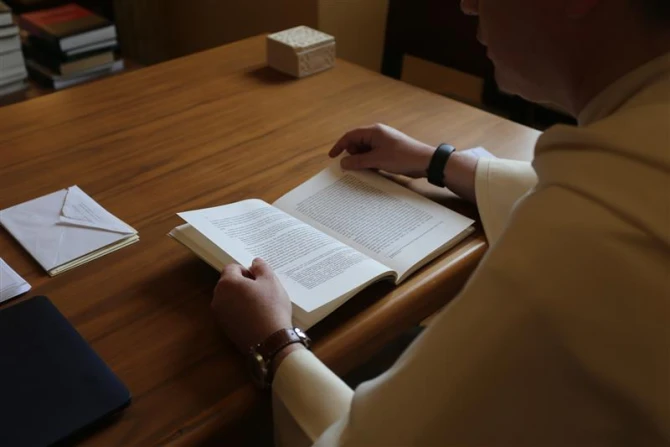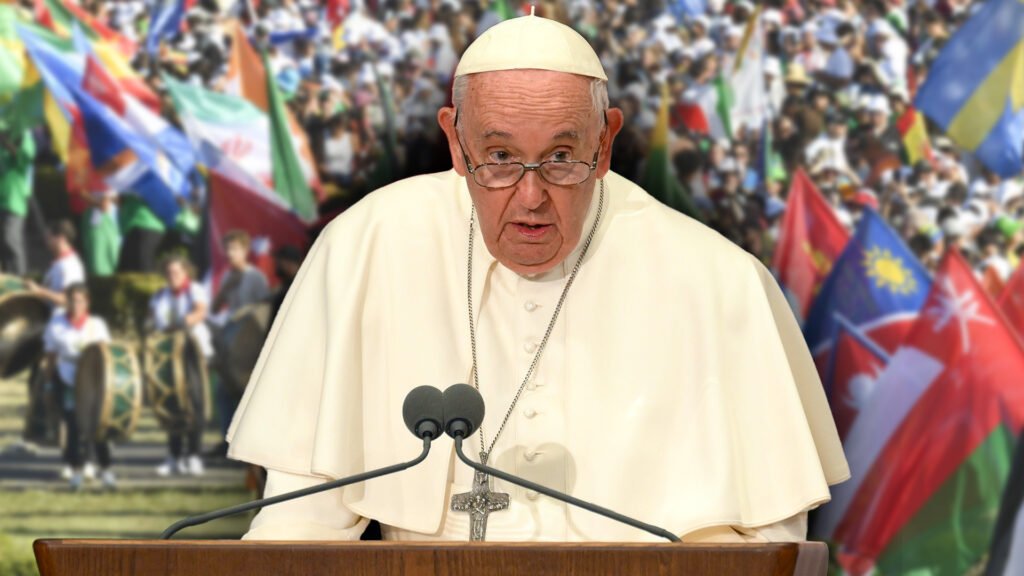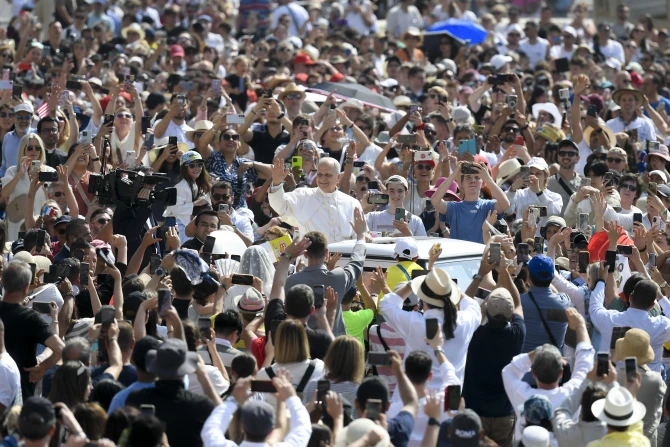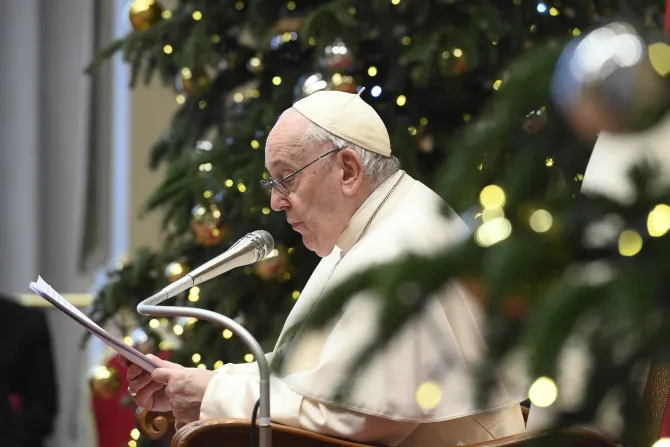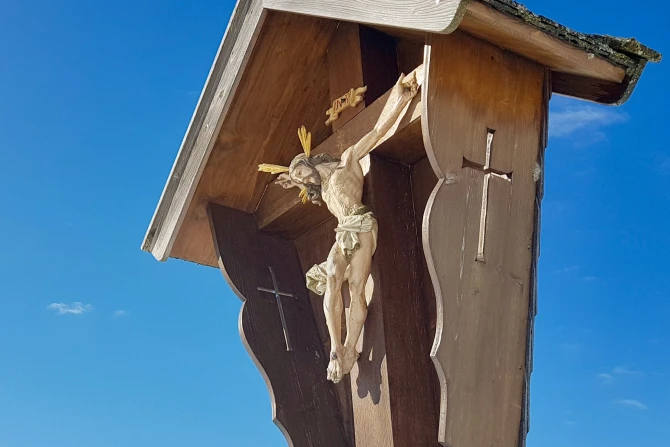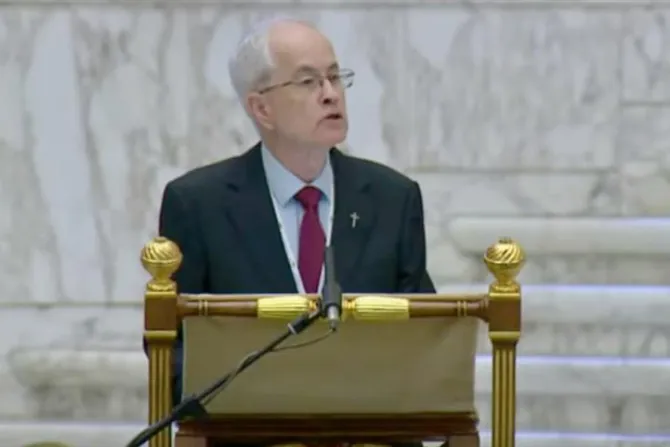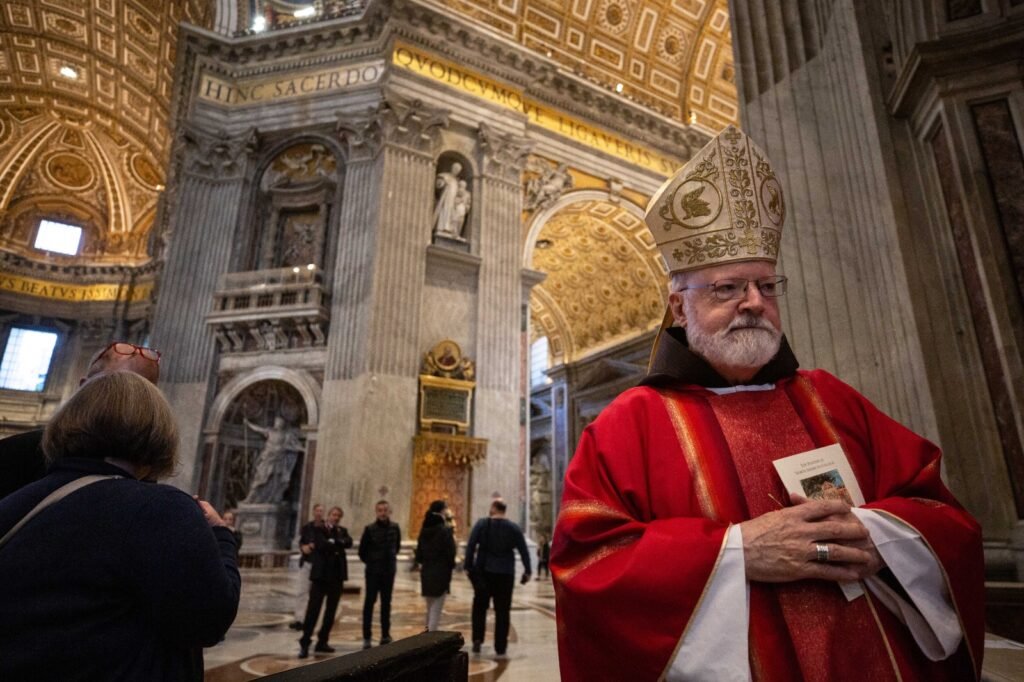Pope Leo XIV earned his doctorate in canon law from Rome’s Pontifical University of St. Thomas Aquinas, where his thesis on the leadership of the Augustinian order may give insight into how the new pope will govern the Catholic Church, according to the university’s rector.
In an interview with EWTN News, Dominican Father Thomas Joseph White said he imagines that Leo XIV’s canon law formation will influence his governance as pope by providing “a balance between being consultative and making final decisions,” balance that would be familiar to Leo after 12 years of experience leading a religious order.
White, the university’s first American rector, also pointed out that both Pope John Paul II and Pope Leo XIV did their doctoral work at the Angelicum, as it’s commonly called: “For our university, it’s just an unspeakable honor that we’ve been involved in the formation of two of the last four popes.”

Leo studied for a canonical licentiate (the coursework for a doctorate) at the Angelicum from 1981 to 1983 after making his solemn vows in the Order of St. Augustine in August 1981. He was ordained a priest in June 1982, in the midst of his studies, and in 1985 he completed his doctorate with a thesis titled “The Role of the Local Prior in the Order of St. Augustine.”
According to White, Father Prevost’s thesis has a vision that could be extended beyond the Augustinian rule and the role of the order’s prior to be applied to the episcopacy, and even to the papacy.
“It’s a really mature work of a 30-year-old who’s extremely learned, very well read, and deeply thoughtful and spiritual,” the Dominican said.
The thesis, he explained, reflects “on obedience and authority in the Catholic Church and the communal nature of shared life, or communion of persons, the respect of conscience, the respect of the human persons, gifts, the talents of the brethren, and also the limitations or sufferings of the brethren, and how the prior is supposed to refer himself to Christ and to the rule, and cultivate a selfless way of life for the service of the common good of all.”
The pope’s doctoral writing also explores, according to White, how the superior of a religious order must respect the consciences of the order’s members, working with the freedom of each person while ultimately having “the responsibility to make final decisions and to assure the communion and unity of the group in question.”

Then-Father Prevost studied at the Angelicum during what White called “the golden age of our canon law faculty.” The university’s canon law professors in the early ’80s helped Pope John Paul II prepare and edit the 1983 Code of Canon Law, which is still in effect today.
He said what is evident from the future pope’s thesis is that he learned a theory of obedience where “obedience is something exerted through the life of the mind, open to the truth of the faith, the truth indicated by the rule of life, and the will is to consent freely by understanding a shared truth the community wants to live together.”
The rector called it a balanced but “demanding version of obedience,” very respectful of people in the context of a shared set of goals based on the truths of the Catholic faith.
“So his Dominican vision of obedience, if I could put it that way, and his study as a canonist in the Augustinian friars, that’s something that probably is really deep in him and probably very helpful,” White noted.
The topic of Pope Leo XIV’s thesis on the prior general of the Augustinians later became of greater practical significance when then-Father Prevost was himself elected prior general in 2001, leading the order until 2013.
“It’s really interesting,” White noted, “how God prepared him for this kind of task of being a leader in the Catholic Church who’s respectful of [everyone].”
This article was originally published on Catholic News Agency.

